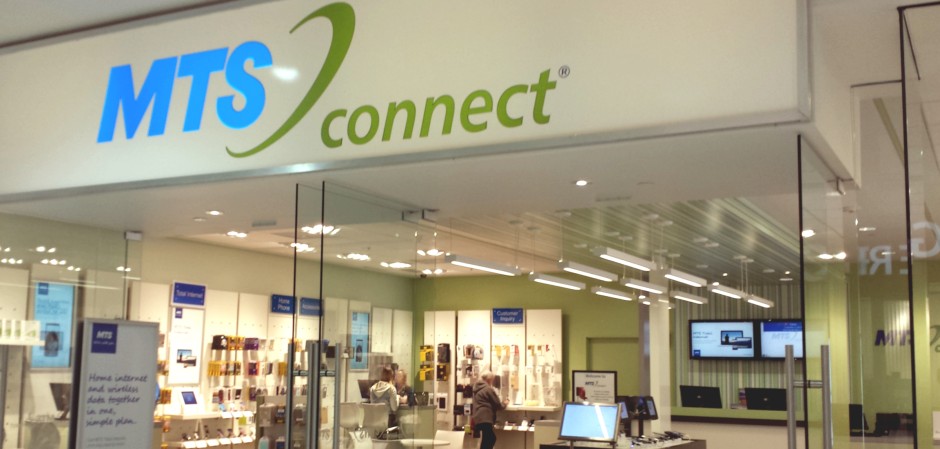I’m an MTS customer and my bill is about to go up
When I read the news of Bell buying MTS I felt my wallet shudder.
My start with OpenMedia could not have come at a more fascinating time. This month marked the beginning of my internship, and as I was leaving my home province of Manitoba for Vancouver’s ocean views, along came the announcement of Bell’s bid to acquire MTS. I read the news on my smartphone – which incidentally runs on MTS’s unlimited data plan – and felt my wallet shudder.
A year of living as a student has not been kind to my finances. Yet for the past half-decade, university students from Manitoba have had an edge over their counterparts from other provinces. With MTS I currently pay nearly half of what an Albertan student would for maximum data with Bell. For example, compare Bell’s max data and local calling plan for $150 per month, which offers 15GB of data, with MTS’s unlimited data and local calling plan for $65 per month. The same goes for customers in Ontario, BC and the Maritimes, who also pay out the nose for wireless services (you can learn more about provincial pricing variation here).
This is an extremely uncertain time to be an MTS customer. With Bell bidding for control of the Manitoba carrier’s hefty share of the market, I feel caught in the middle. The likelihood that my cell phone bill is going to go up dramatically if Bell is successful concerns me. If the cost of my plan is raised to match that of Bell’s offerings across Canada, that could mean paying nearly double the current rate. It’s a hit that customers cannot take.
Backers of the Bell-MTS deal claim that the low cost of my current bill is due to “unsustainable price rivalry”. In other words, they dubiously claim that MTS kept prices artificially low to beat out the competition, and as a result no company involved could make a decent profit. The deal rides on the assumption that MTS has not been making enough money to upgrade technology and infrastructure in Manitoba, and that Bell’s $1 billion five-year plan will be the fix.
So is Bell actually here to drag Manitoba out of the Stone Age? Well, the facts tell a different story.
Despite being one of the most affordable carriers in the country, MTS boasts profits even higher than Bell’s. According to internationally recognized telecom expert Dwayne Winseck:
Claims that competition and low prices have been artificially sustained in Manitoba collide with the reality that profits at MTS are very high, not low, and much higher than BCE’s actually. Bell itself noted the point in its presentation to analysts, suggesting that MTS EBITDA rates were comparable to its own.
They have a leg up on Bell’s capital investment as well. And when you take a closer look at MTS’s residential Internet offerings, they can offer a 5 Mbps basic broadband Internet connection to 95% of Manitobans, which outperforms Bell in Atlantic Canada. They have also been active in rolling out 4G LTE coverage to Manitoba’s largely scattered and rural residents. They aim to have 90% of people in the province covered within the next 2 years.
Bell’s bid does not include plans to significantly outdo the goals MTS already had in place. And it doesn’t quite square with the claim that Bell will overhaul services available to Manitobans. If MTS was making enough of a profit to keep us up-to-date so far, then the claim that rates were unsustainably low seems to go up in smoke. Maybe Bell simply became fed up with matching competitor prices.
This deal would see the removal of a key player in the market that kept my bill low. When compared nationwide, it’s clear that MTS’s low rates have been forcing its competitors to follow suit in Manitoba. For years, MTS has been crucial in maintaining this diversity of choice in Manitoba’s telecom market. The proposed merger would take player four out of the game.
A similar merger was just shut down by the European Union for this very reason. The U.K., like Manitoba, has some of the most affordable wireless plans in its league; we can attribute these competitive prices to its four-carrier market, which would have been reduced to three had the merger been successful. Another hallmark of the U.K. market is the presence of a wide range of affordable mobile virtual network operators (MVNOs) such as GiffGaff.
The EU called out this attempted merger as an unfair deal. Now it’s time for Canada to do the same.
I was drawn to OpenMedia because they fight for fairness. It doesn't seem justifiable that customers like me should watch companies buy out their competition, charge me more, and not deliver on promises to improve my service.
What we want is to be charged a reasonable price for our data and Internet access. It begins with demanding that the Competition Bureau, CRTC, and Ministry of Innovation, Science and Economic Development do what’s right and nix this takeover.
The Competition Bureau is currently accepting feedback on the proposed Bell-MTS merger. Let them know what you think. And if you want a deeper dive into the background of the deal, be sure to consult these highly informative blogs from OpenMedia friends Mr. Ben Klass (here) and Professor Dwayne Winseck (here), both of Carleton University in Ottawa.

 Take action now!
Take action now!
 Sign up to be in the loop
Sign up to be in the loop
 Donate to support our work
Donate to support our work